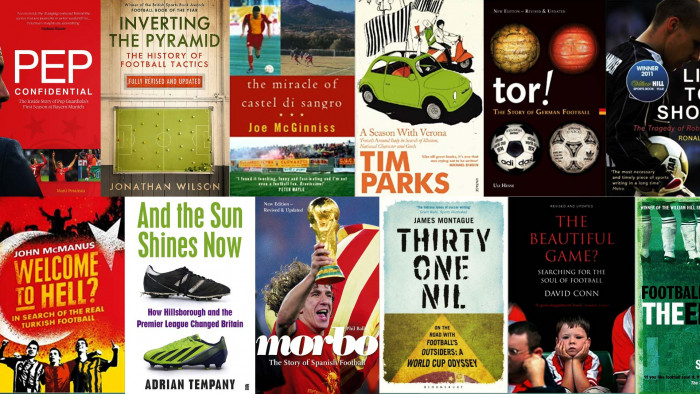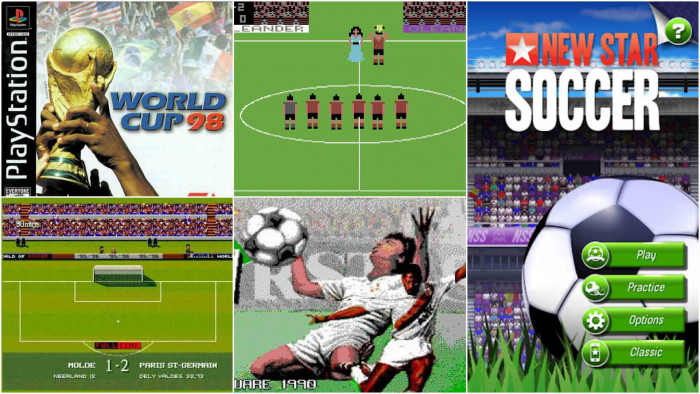Can watching the World Cup damage your mental health?
When do pre-match nerves and post-match blues become actual, pathological problems – and how do you deal with it when they do?


It’s happened again. Despite every possible advantage, you’ve let everyone down and the jeers of the world are ringing in your ears. Congratulations: you’re either the England international football team, every even-numbered summer since the Vietnam War, or you’re the version of myself that my brain creates before I take on literally any task.
I, like you, am incredibly excited about the World Cup. I also – like one in ten people in the UK – suffer from a disabling anxiety disorder, which means that when England actually win something and I find myself, against every better instinct, caring about them, I run into problems.
“One of the main problems for people who are anxious is struggling to tolerate uncertainty, and football is pure uncertainty,” says Charlotte Rice, a psychological well-being practitioner for the NHS and a long-suffering Crystal Palace fan. “Shame, loss, humiliation – emotions that inevitably come from your team doing badly – can be triggers for depression.”
The regular football season, where the stage is smaller but the stakes are more personal, can be equally troublesome. I support Newcastle United, a permanent punchline owned by the UK’s least interesting cartoon super-villain. They spent most of the season staring down relegation and therefore genuinely affected my mental health. I was visibly anxious while refreshing the live updates on my phone in the pub, and I irrationally projected their failings onto my own self-loathing.
“It’s even resulted in arguments with my wife”
You’d think a Manchester Utd fan would have an easier time but Dan, 29, begs to differ. “If we lose, it can make it difficult to sleep that night,” says Dan, who suffers from anxiety and depression. “I struggle to switch off, and end up getting wound up easily. It’s even resulted in arguments with my wife.”
Mac, 30, a London-based teacher and Tottenham fan who suffers from a panic disorder, found that he doesn’t “get massively upset for days” because of a bad result, but that he did used to “obsess over Spurs and football in general” to distract from his other problems.
“I’d focus my energies on football, and ignored my relationship and my mental health falling down around me until it was too late.”

An anxious Aston Villa fan
Researchers at the University of Montreal have described watching sport as a source of “intense emotional stress”, recording elevated heart rates of up to 110 per cent among spectators at a hockey match – regardless of whether spectators supported the team or not. Studies have also shown that watching football can be linked to increased risk of heart problems, and can encourage unhealthy behaviours such as over-eating, which should come as a surprise to absolutely no one.
Turing off the TV seems like the most obvious solution, but Charlotte argues that the opposite may help. “People often avoid things that make them anxious, and so don’t develop coping mechanisms. Football can be a good opportunity to practice managing anxiety and uncertainty in a safe environment.”
Football’s fandom has its issues, but engaging with the community can be key. “Often, people with mental health problems find themselves isolated,” Charlotte explains: “Football can give you a sense of belonging which can really help combat depression.”
“Lowering expectations can certainly help”
Mac recommends, with some caveats, heading online. “The twitter community around football gets a bad rep, and whilst some people on there are undoubtedly bad, I’ve also found a lot of support and empathy.”
The community can also help you to deal with triggers caused by the highs and lows of the World Cup. Charlotte says that “the best coping mechanism among England fans is often humour – we love to laugh and bond about how rubbish England are.” Dan suggests that lowering your expectations helps, so that any success – however small – becomes a “bonus”.
“Also, don’t breathe into a brown paper bag as I did at Euro 2004,” he advises. “It doesn’t work.” Most medical studies agree that this TV trope doesn’t actually help.
Read more: How the secret psychology of ‘wishful thinking’ could propel England to World Cup glory

A young Coventry City fan nervously bites his nails
Not everyone reading this will suffer from a mental health problem, and this is where the rest of you come in. Though this may be a particularly vulnerable time for some of your pals, it’s also a great opportunity to help them out of their own heads - invite them to game nights and pub trips, involve them in discussions, and generally keep an eye out. A new campaign by CALM (the Campaign Against Living Miserably) advises that you “Mark Your Man”.
“We know that men in particular can often find it difficult to seek help when times get tough,” says Simon Gunning, CEO. “At CALM, one way in which we approach lowering this barrier is by getting people together over collective passions - music, sport, fashion, whatever it may be.” The #MarkYourMan campaign urges you to support your friends like you would support your football team – in good times and in bad.
With a little preparation, anxiety sufferers like me can avoid too many negative repercussions when watching the World Cup. Post-match self-care is also key. “Make sure you’ve got something nice planned following each big game,” Charlotte says, “and if you’re worried that it may affect you, try and have something to do right after England are likely to get knocked out (after the group stage, naturally).”
This doesn’t have to be something big – dinner with your friends, a walk with your dog. Dan says that “it’s been a lot easier to deal with a bad result since having kids” as “they’re a pretty good distraction.”
Most importantly, be careful not to drown your sorrows with drink. Post-match pints are a great way to decompress, but they’re also a dangerously easy way to excuse using drinking as a coping mechanism. Be honest with yourself, and also look out for your pals.
It’s easy to write off the symptoms of anxiety and depression as football nerves – personally, I excused my anxiety and depression as a side effect of stress and loneliness until it had already cost me a relationship, a handful of jobs, and at least one point off a degree. If you’re worried that your feelings might be more than just World Cup Fever, talk to your GP, CALM or even your mates.
For advice on managing your mental health, visit www.thecalmzone.net or call their helpline: 0800 58 58 58
(Pics: @gogdenart, Getty)
Latest
Related Reviews and Shortlists









